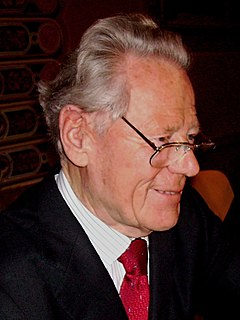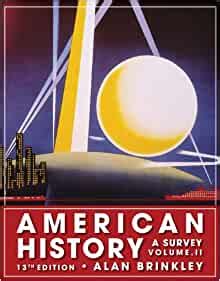A Quote by Ezra Taft Benson
The Declaration of Independence to which these great men affixed their signatures is much more than a political document. It constitutes a spiritual manifesto-revel ation, if you will-declaring not for this nation only, but for all nations, the source of man's rights.
Related Quotes
In its main features the Declaration of Independence is a great spiritual document. It is a declaration not of material but of spiritual conceptions. Equality, liberty, popular sovereignty, the rights of man - these are not elements which we can see and touch. They are ideals. They have their source and their roots in the religious convictions. They belong to the unseen world. Unless the faith of the American people in these religious convictions is to endure, the principles of our Declaration will perish. We can not continue to enjoy the result if we neglect and abandon the cause.
When Thomas Jefferson wrote the Declaration of Independence, declaring that all men were created equal, he owned slaves. Women couldn't vote. But, throughout history, our abolitionists, suffragettes, and civil rights leaders called on our nation, in reality, to live up to the nation's professed ideals in that Declaration.
The Declaration of Independence was to set forth the moral justification of a rebellion against a long-recognized political tradition - the divine right of kings. At issue was the fundamental question of whether men's rights were God-given or whether these rights were to be dispensed by governments to their subjects. This document proclaimed that all men have certain inalienable rights. In other words, these rights came from God.
Thomas Jefferson understood the greater purpose of the liberty that our Founding Fathers sought during the creation of our Nation. Although it was against the British that the colonists fought for political rights, the true source of the rights of man was clearly stated in the Declaration of Independence. Jefferson wrote that all humans are endowed by their Creator with certain unalienable Rights . . . . It was self-evident to him that denying these rights was wrong and that he and others must struggle to win what was theirs.
The founding of our Nation was more than a political event; it was an act of faith, a promise to Americans and to the entire world. The Declaration of Independence declared that people can govern themselves, that they can live in freedom with equal rights, that they can respect the rights of others.
We should remember that the Declaration of Independence is not merely a historical document. It is an explicit recognition that our rights derive not from the King of England, not from the judiciary, not from government at all, but from God. The keystone of our system of popular sovereignty is the recognition, as the Declaration acknowledges, that 'all men are created equal' and 'endowed by their Creator with certain unalienable Rights.' Religion and God are no alien to our system of government, they're integral to it.
We stand today at the threshold of a great event both in the life of the United Nations and in the life of mankind. This declaration may well become the international Magna Carta for all men everywhere. We hope its proclamation by the General Assembly will be an event comparable to the proclamation in 1789 [of the French Declaration of the Rights of Man], the adoption of the Bill of Rights by the people of the U.S., and the adoption of comparable declarations at different times in other countries.
The doctrine of the Declaration of Independence predicated upon the glory of man and the corresponding duty to society that the rights of citizens ought to be protected with every power and resource of the state, and a government that does any less is false to the teachings of that great document - false to the name American.
If the citizens of the United States are to turn away from the Communist Manifesto and preserve the purpose of the Declaration of Independence, the U.S. Constitution, and our Bill of Rights, we must first thoroughly reexamine and learn about each of them, and uphold America's founding documents by testing every political action in light of them.
The Declaration of Independence has been called, with some justice, the most revolutionary document in human history, in that it placed the individual person first in the political scheme of things and made the legitimacy of governments and ruling classes contingent on their success at preserving individual rights.
Before the formation of this Constitution it had been affirmed as a self evident truth, in the Declaration of Independence, very deliberately made by the Representatives of the United States of America in Congress assembled that 'all men are created equal, and are endowed by their Creator with certain unalienable rights' This declaration of Independence was received and ratified by all the States in the Union & has never been disannuled. May we not from hence conclude, that the doctrine of Liberty and Equality is an article in the political creed of the United States.
I believe that God has endowed men with certain inalienable rights as set forth in the Declaration of Independence and that no legislature and no majority, however great, may morally limit or destroy these; that the sole function of government is to protect life, liberty, and property, and anything more than this is usurpation and oppression.
We must never cease to proclaim in fearless tones the great principles of freedom and the rights of man which are the joint inheritance of the English-speaking world and which through Magna Carta, the Bill of Rights, the Habeas Corpus, trial by jury, and the English common law find their most famous expression in the American Declaration of Independence.
Nothing manifests more persuasively the American contradiction than that the author of the Declaration of Independence, a slave owner, wrote an antislavery clause into the document - as if to compel himself to be better than he was - which then had to be edited out so the Southern states, including Thomas Jefferson's own, would sign it.







































